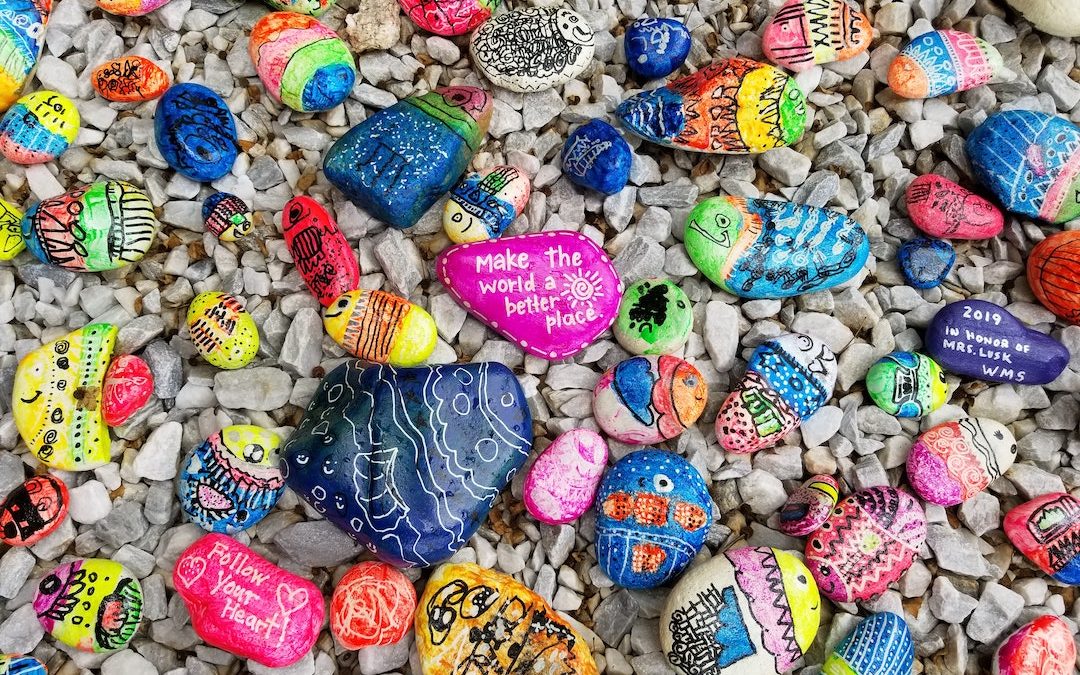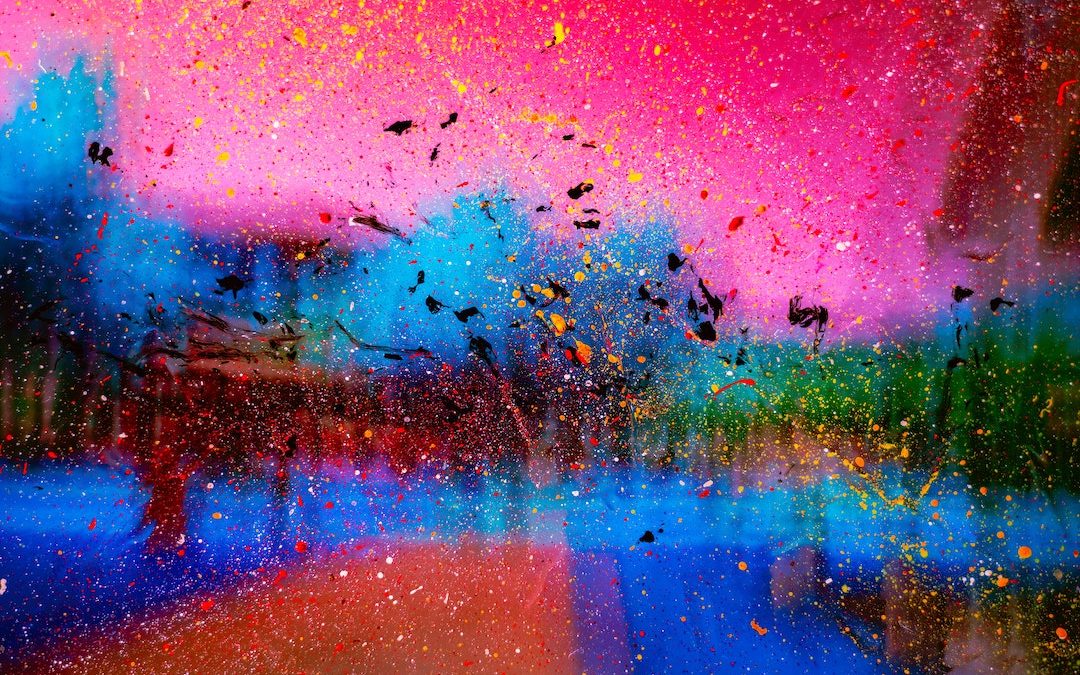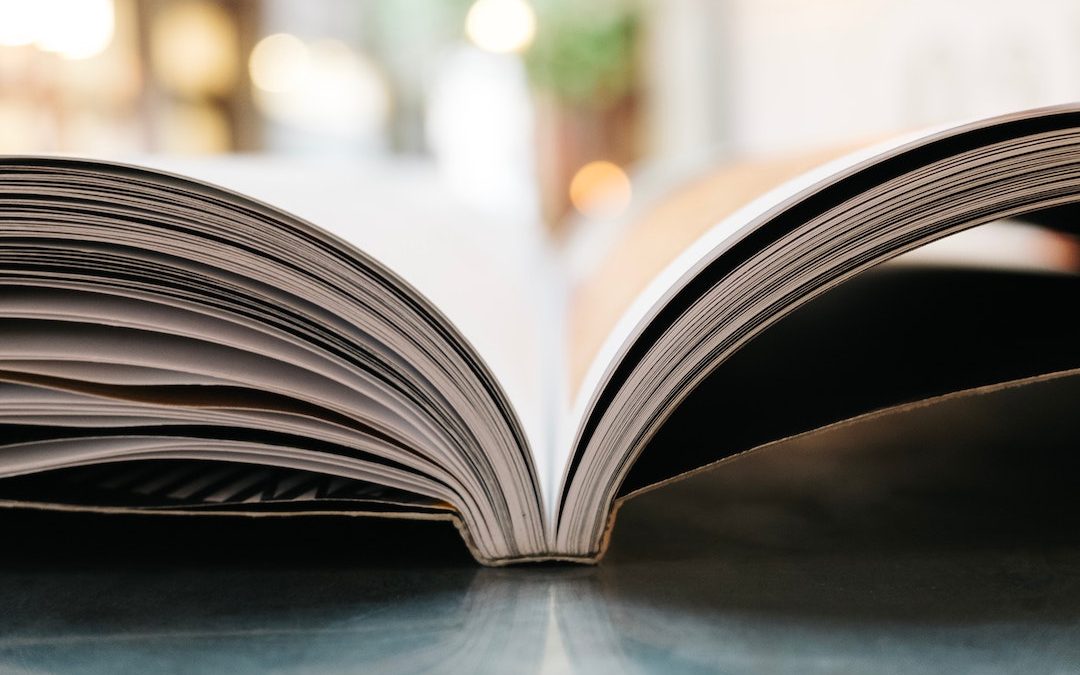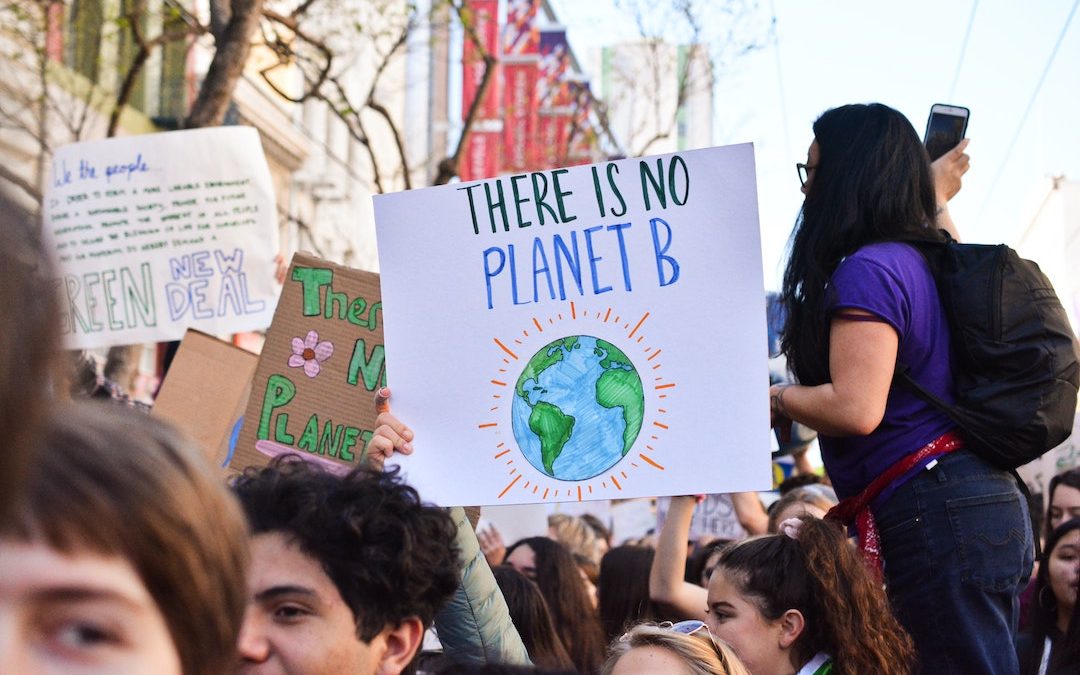
by Rachel Toalson | Books
1. Reading: I really enjoyed Amy Sarig King’s middle grade book, The Year We Fell From Space. I know I’ve been like an A.S. King super-fan lately, but she’s so good at stories for young adults and adolescents. If you’re looking for a great book for adolescents or to read for yourself, or you’re looking for a good mentor text, check this one out. Or just read through King’s entire backlog. It’s worth it. Trust me.
2. Reading + Watching: A couple years ago I read The Reason I Jump: The Inner Voice of a Thirteen-Year-Old Boy With Autism, by Naoki Higashida. I cried. I laughed. I felt thankful that a book like this existed in the world. And then this summer my kids and I watched the Netflix documentary based on the book. And I cried. And laughed. And I felt thankful that a documentary like this existed in the world. As the mom of a kid on the autism spectrum both the book and the documentary were beautiful inside looks into the minds of young adults with autism. After watching the documentary, my 13-year-old said, “So much more makes sense now.” He understood his brother better—and other people in his life. That’s worth a watch for sure.
3. Reading: “There is nothing stronger than a broken woman who has rebuilt herself.” Ten Steps to Nanette, by Hannah Gadsby, is probably one of the best memoirs I’ve read in a long time. I was introduced to Gadsby probably like most people were—after her Netflix comedy special, “Nanette.” It made me laugh and cry and feel so many things. Her book is the same. It’s a profound look at neurodiversity and LGBTQ+ identity that’s also funny and charming. She reads her own audiobook—well worth the listen.
4. Watching: On the subject of documentaries, another the family and I watched this summer that’s well worth the watch is Youth V Gov on Netflix. It’s about a group of kids who brought a lawsuit against the federal government for actively working to make the climate crisis worse and, in the process, endangering their future health and well being. My kids were inspired by the young advocates and started talking about ways they could work in their own communities to make change.
5. Reading: I guess I was on a memoir/nonfiction kick this month, because I also read Managing Expectations: a Memoir in Essays, by Minnie Driver. It was another entertaining, emotional book, surprisingly accessible though Driver is a celebrity with a completely different life than the one I live. She’s down to earth, wise, and kind and compassionate in her relationships. I read the audiobook, which Driver reads herself (and her accent makes it a lovely read).

by Rachel Toalson | Wing Chair Musings
“There is nothing in the world, I venture to say, that would so effectively help one to survive even the worst conditions, as the knowledge that there is meaning to one’s life.”
—Viktor E. Frankl
Ever since I read this quote, I have been turning it over and over in my head. It rings true to me, deep down. We all live through countless challenges. Some of us have lived through multiple traumas. What helps us survive the hardest things?
Meaning.
But what is meaning?
That’s the question I wanted to answer after Viktor E. Frankl’s words got stuck on repeat.
And what does it mean to have meaning to your life?
These are questions the great philosophers of every age have tried to answer. And the difficult and freeing thing about philosophy is that there is no one right answer.
We all find different meaning to our lives. And sometimes, as we grow and change, the meaning to our lives grows and changes.
When I consider the meaning to my life, I find myself asking more questions. What is my purpose? What have I been put on this earth to do? How can I make the world a better, kinder, more just, more egalitarian, more enlightened, more loving place?
Your questions may look the same, or they may look entirely different. But I believe they all boil down to one overarching question: Why am I here?
We find meaning to our lives in purpose.
It’s not always easy to figure out or even remember our purpose, especially when we have brain disorders. Depression often clouds our purpose. OCD yells too loudly to hear it. Anxiety spirals too strong a whirlpool to clearly see it. But on our good days, we probably know why we’re here.
To love the people around us.
To remember we belong to each other.
To repair the broken places of the world.
The spread light and love and hope and compassion and acceptance and wonder and meaning.
There it is again: meaning.
When we know our lives have meaning—that there is a purpose to our existence, that we are important and necessary to a world that doesn’t always make us feel important and necessary—we can, as Frankl said, “survive even the worst conditions.”
How do we find our purpose? We look inside ourselves. And if our hearts and minds are too cloudy to see it, we ask someone who loves us and knows us. Why do you think I’m here? What value do I bring to the world?
Sometimes we forget our purpose, the meaning to our lives. It’s good to have someone else to ask, even if they don’t know the exact right answer. They can set us back on the path to discovery.
And when we find our purpose and meaning—whether through someone else or through our own self-reflection, it’s worthwhile to write it down. Keep it in a special folder or hang it on a bulletin board. Read it every night before you go to sleep.
Because challenges will come again. We’ll forget who we are and why we’re here. And we’ll need reminders.
I hope you always know how important you are to the world. Happy holidays.
Some questions to help your journey:
Sometimes writing can help us lock in on a purpose.
Here are some hopefully helpful questions to ask yourself in the quest to discover your purpose and the meaning to your life. Journal your answers. Pay attention to recurring themes. Remember, always, that you are vital and irreplaceable. No one else can be you. No one else can do what you do. No one else can accomplish your purpose.
1. Why am I here?
This can often be a difficult question to answer—and it may change during the seasons of life. If you’re having trouble answering it yourself, ask a partner or a close friend or family member. As mentioned above, sometimes others can see our purpose more clearly than we can. At least they can provide us with a springboard for deeper thought and reflection.
2. What do I love doing?
Considering what we enjoy doing can lead us to the cross-section where our passion meets our purpose. Passion provides meaning to our lives; if we find ourselves in a place where we lack passion for our work or our everyday lives, we’ve probably lost sight of the meaning to our lives. Reconnecting to that passion can help us reconnect to meaning and remember who we are and why we do what we do.
3. How do I want to impact the world?
Connecting why we’re here and our passion with a deeper purpose—like writing truth in our stories or enlightening people with our poetry or spreading compassion and love—can often lend a deeper meaning to our lives. There may be many people who desire to spread the message to kids that they deserve love just for being themselves—but no one can do it the exact same way I can. They do it their way. I do it mine—which means I’m necessary, too. And my life has meaning.
It’s the same for you. You have meaning to your life. We all do; we just have to look deep inside ourselves and find it. And embrace it. And live it.

by Rachel Toalson | Wing Chair Musings
We are all born with a giant measure of creativity.
Of course that creativity looks different from person to person. Some use their creative brains to write fantastical or realistic stories. Some use creativity to draw portraits or dance on stage or act. Some use it for science and technology, psychology or caretaking.
Any time we problem solve, we are using our creative brains.
It’s true that we don’t always feel creative. Sometimes we feel the very opposite of creative. I often feel the very opposite of creative when I’m tired or overwhelmed or burned out and running on fumes or when one of my sons talks to me for an hour and a half about some video game I know nothing about.
How do we spark our imaginations when we feel decidedly un-creative?
Well, like most things regarding creativity, it doesn’t come down to an exact science. It will vary from person to person. But there are some things science says can help.
Like doing some other creative thing that isn’t directly related to the creative thing we’re trying to do. For example, when I feel un-creative in my writing, sometimes I take a step away from whatever project I’m working on and focus on something else that requires my creative brain—baking, drawing (although I’m not good at it; I just play around), or, sometimes, sewing bags and self-designed things I might use later as holiday gifts.
I have a friend who crocheted dragons with her newest Dragons chapter book. (They are super cute. She is amazingly talented.)
Time away is helpful. Sometimes all it takes to get the imagination back online is to take a break from our creations. It could be a short five-minute break or a rest-of-the-day break because we recognize we may be pushing ourselves too hard or putting too much pressure on ourselves. It could be a week-long vacation where we immerse ourselves in another routine entirely.
Movement also sparks the imagination. Science shows that when we take a walk or go on a run or stretch out into a yoga flow, it sends more blood to the brain. And more blood to the brain means we have a greater capacity for creative thinking. Schedule a break and take a vigorous walk. When you’re done, return to your project. I bet you’ll have all sorts of new ideas.
It’s probably no surprise that a reading or music break helps ignite the imagination. It can seem counterintuitive to creative pursuits, but our consuming can distract our more logical, conscious mind and allow the subconscious mind an opportunity to play freely. And the books we read, the music we listen to, the shows we watch (so long as we don’t spend all our time consuming) can potentially inform our creativity and unlock ideas for our ongoing projects. When I read books like Isabel Wilkerson’s Caste or Rosalind Miles’s The Women’s History of the Modern World, or anything by A.S. King, my brain is filing information and techniques and new ideas in some cabinet, to be used later. It’s magical.
I’ve included more suggestions below. But this is something about which we’ll have to be experimental. Paying attention to the things that light up your imagination are important. Become your own detective.
May you have a joyfully imaginative month.
Here are more ideas for sparking your creativity:
1. Using prompts
Writer’s Digest posts a weekly prompt that I’ll check out now and then. But we can also make our own—looking at photos or pieces of art (in poetry, this is called an Ekphrastic poem). I have some daily desk calendars—one features a new vocabulary word and another shares a quote from a semi-famous person—that I’ll use as inspiration for creative projects (in fact, the vocabulary one inspired a YA book that I just finished, in which every chapter is a new vocabulary word). Prompts and visual art can often kick-start our creativity.
WD prompts: https://www.writersdigest.com/be-inspired/poetry-prompts
2. Visualization
It sounds a little weird, but sometimes when I’m stuck in a creative project I will lie down on my bedroom floor, close my eyes, and visualize my characters interacting with each other. Sometimes I’ll turn this into a meditation session. Or sometimes I’ll do an actual meditation session, without thinking about anything related to my project. Just getting the mind free and clear of all its daily junk can be useful for freeing up the space needed for greater measures of creativity.
Playing with the kids. Or doing what-if scenarios with the kids.
3. Music
I mentioned this earlier, but music can really get the brain firing. If you feel stuck, take some time away to make playlists. Sometimes I’ll make playlists for the books I’m working on. Music has a magical ability to make us feel more relaxed and open to the world around us. If you’re writing words, though, wordless music would probably be best. But there’s some great inspirational music (I’m thinking John Williams and Danny Elfman.)

by Rachel Toalson | Books
1. “The door is open. Go.” I recently finished Louise Erdrich’s masterpiece The Sentence. This is the first pandemic book I’ve read, and it’s probably the only one I want to read. Erdrich handled it so graciously and gently and somewhat peripherally, framed around a beautiful story about a bookstore and a ghost and love. She won the Pulitzer Prize for her novel The Night Watchman (which is also a masterpiece). Next up on my list is her novel, The Round House, which won the National Book Award in 2012. For more entertainment, here’s Ann Patchett and Louise Erdrich discussing The Sentence.
2. Every Tuesday morning during the summer my family and I watch a documentary or docuseries together. So far we’re wading through High Score (Netflix), which traces the history of video games; Welcome to Earth (Disney+/National Geographic), which is a look at some of Earth’s amazing places and mysteries, hosted by Will Smith; We Are the Champions (Netflix), a sometimes humorous look at the world’s most unique and bizarre competitions (you must watch the Cheese rolling episode); The Great British Baking Show (Netflix), a competition show that features bakers baking cakes, cookies, breads and all sorts of desserts in sometimes humorously disastrous ways; and The World According to Jeff Goldblum (Disney+), a charming docuseries that takes ordinary topics and explores the connections of history and science to make a fascinating trip through the world. We’re thoroughly enjoying all of these documentaries.
3. I know, I know. I had an article from National Geographic in last month’s newsletter. But I really do enjoy this magazine. And July’s cover was so arresting I couldn’t help but share about it. The cover photo featured Chasinghorse, an Indigenous model and activist, and was taken from the cover story, “We Are Here,” which explored how North America’s Native nations are reasserting their sovereignty. It was a fascinating look at this important culture and the ways Native nations are keeping their culture alive. If you don’t subscribe to the magazine, I’m sure your local library does; check it out there. You don’t want to miss this story. Here’s a little background on it, as well as a short interview with Chasinghorse.
4. “The way to keep going? Never stop reading. Say more than you thought you knew how to say in sentences better than you ever imagined for the reader who reads between the lines.” Verlyn Klinkenborg’s Several Short Sentences About Writing was one of the most enjoyable books about writing that I’ve read in a long time. It’s a short book packed with wisdom about writing short sentences and communicating clearly. A great read for both beginners and seasoned writers.
5. “Sometimes a person who has survived losing everything builds the hardest shell over the tenderest soul.” It’s been a while since I’ve read a young adult novel I liked as much as Cory Anderson’s What Beauty There Is (with the exception of all A.S. King’s books). This book was a 2022 William C. Morris YA Debut Award finalist, and it’s easy to see why. It’s full of poetry and motion and tells the story of a boy, a girl, and survival. Highly recommended for those who read and write YA.

by Rachel Toalson | Wing Chair Musings
I recently returned to work from a Sabbatical week. During this Sabbatical week, I took luxurious naps and read for hours on end and hung out with my kids and watched documentaries and ate good food (probably too much) and rested as well as I could.
I still feel tired.
I’m realizing, once again, that it’s the world that makes me tired.
The world makes a lot of us tired.
What is happening in the world encroaches on the safe spaces I draw around my life, my work, my heart. I want to distance myself from it all. I want to ignore it. Pretend it isn’t happening. I want to believe this is just the way it is, that I won’t be able to change anything.
That’s just because I’m tired. I’m tired of fighting for the things I believe in. I’m tired of trying to stand strong when so many want to knock me down. I’m tired of trying to teach my kids how to be kind, compassionate, loving activists in a world that shows them something completely different, everywhere they turn.
Maybe you can relate.
But just because I’m tired doesn’t mean I can quit. Just because we’re tired doesn’t mean we can quit.
Obviously, we can’t fix every problem we find in the world. That would take a thousand of us, and probably that many lifetimes. But we can pick our focus.
On a recent walk, my husband asked me, “If you could pick one issue to focus on, and you knew someone else would focus on the other issues important to you, which one would you pick?”
I said, “Only one?”
I broke the rules, of course. I told him I’d focus on women’s rights, LGBTQ+ rights, and environmental issues to combat climate change. (There are many other issues I care about, but if I knew someone else was taking care of them, these are the top three I’d put my energy into.)
I used to write beat poetry inspired by issues I read about in the newspaper. I likened myself to the old beat poets, Allen Ginsberg and Jack Hirschman and Diane de Prima and Joanne Kyger and Jack Kerouac. They wrote poetry as an activist act or as protests or to rally a cry for better treatments and policies (among other things).
I used to share my beat poetry. I was called an aggressive feminist, a misguided liberal, a disgusting man-hater, a disgrace to my husband and children (!!). By people I knew, people I didn’t know, people I’d served with in ministry for decades.
I lost my courage for a while.
But I think I’m finding it again.
I’ve picked up my beat pen. I’ve started writing that pointed poetry again. I’ve begun using my voice in louder (and softer) ways. It’s what I can do. It’s my way to speak up. It’s where I can make a difference.
The haters win when they silence you.
We can take heart from Jesse Jackson, an American civil rights activist and minister: “Wherever you are tonight, you can make it. Hold your head high; stick your chest out. You can make it. It gets dark sometimes, but the morning comes. Don’t you surrender!”
I find courage in the words of Thema Bryant-Davis, an American psychologist and minister: “Outlast the heartbreak and disappointment. Dare to believe there are beautiful moments ahead.”
And I find hope in the words of Eleanor Roosevelt: “I have never felt that anything really mattered but the satisfaction of knowing that you stood for the things in which you believed and had done the very best you could.”
I hope we all do the very best we can while choosing to be the most loving, accepting, and understanding people we can be.
Light shines through compassion and love. Shine your heart out.
Question: Where will you funnel your focus? How will you make the world a kinder, more compassionate, more loving, more equitable place?
Small things that add up to big things. That’s how I think about what I can contribute to a cause. I’m not a politician. Sure, I can march and write my representatives and use my voice, but, you know, life gets in the way. So what are some small things we can do that can make a small—or maybe large—difference?
1. Use your gifts.
Maybe you don’t write like I do, or maybe you do. Use your writing. Use your art. Use your creative brain. Use your wicked math skills. Use your creative problem solving. Use your scientific proclivities. Use your self. Be yourself. Share yourself. Share your heart. Do no harm. There are a thousand little things we can do, every day, that might one day add up to something big.
2. Find local ways to get involved.
Maybe it’s the local school board, or attending a meeting to say your piece. Maybe you go to a city council meeting. Maybe you help your city vote on where its city budget dollars should be allocated. Maybe you raise your voice in local marches and peaceable demonstrations. All of these can help you feel like you’re less alone, that you have support around you, and that you are connected to others—and to the issues important to you—in ways that will make a positive difference.
3. Take care of yourself.
When you stand for anything, people will also stand against you. We can’t be brave all the time. It’s okay to take time away from our causes, to refresh and reconnect with the people who love us. To care for ourselves. To take some breaths and protect our hearts and remember that we are amazing and worthy and important, too. And when our strength is shored up, we get back out there and keep sharing our hearts.






